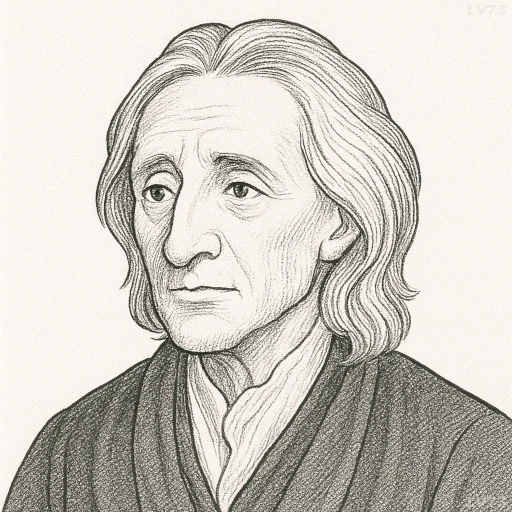“Every man has a property in his own person. This nobody has a right to, but himself.”

- August 29, 1632 – October 28, 1704
- Born in England (UK)
- Philosopher and political thinker
table of contents
Quote
“Every man has a property in his own person. This nobody has a right to, but himself.”
Explanation
In this quote, John Locke asserts the fundamental principle of self-ownership, which forms the basis of his broader political philosophy. According to Locke, each individual has ownership over their own body and person, meaning that no one else has the right to control or interfere with it without their consent. This concept of personal sovereignty underpins Locke’s beliefs about individual freedom, rights, and the limited role of government. The idea that self-ownership is an inalienable right is central to Locke’s theories on natural rights and serves as the foundation for his views on property and freedom.
Locke’s philosophy emerged during the 17th century, a time of political and social upheaval, especially in England, with the challenges posed by monarchical power and struggles for individual liberties. This quote reflects Locke’s opposition to absolute monarchy and his belief in the right of individuals to govern themselves, free from undue interference by rulers or others. His emphasis on self-ownership extended to his views on property: if a person has the right to control their own body, they also have the right to the products of their labor and to the property they acquire. This idea of self-possession was revolutionary, providing a theoretical basis for later political movements, such as those advocating for democracy and individual rights.
In modern society, Locke’s notion of self-ownership continues to influence debates on human rights, personal freedom, and individual autonomy. It forms the foundation for many legal principles, including bodily autonomy in areas such as medical ethics (e.g., reproductive rights, consent for medical treatment) and privacy (e.g., freedom from unwarranted surveillance). Locke’s belief that no one has the right to infringe upon another person’s body or self informs contemporary discussions on civil liberties and the protection of personal freedoms in democratic societies. The idea that we are the ultimate owners of our bodies remains a powerful statement of individual rights, emphasizing the importance of personal freedom and the need to safeguard it from external control.
Would you like to share your impressions or related stories about this quote in the comments section?

